The football federations of Zimbabwe and Kenya have been suspended by world governing body FIFA.
The suspension by FIFA is over government interference.
This is banned by FIFA rules and is frequently sanctioned.

The football federations of Zimbabwe and Kenya have been suspended by world governing body FIFA.
The suspension by FIFA is over government interference.
This is banned by FIFA rules and is frequently sanctioned.

Rwandan-born referee, Salima Rhadia Mukansanga, will make history when she becomes the first woman to referee a match at the finals of the Africa Cup of Nations (AFCON) on Tuesday.
A statement on the CAF official website said Mukansanga, 35, will take charge of the group stage match between Zimbabwe and Guinea on Tuesday at 17:00 local time (16:00 GMT) at Ahmadou Ahidjo Stadium in Yaounde.
She is part of the quartet selected as match officials at the match; making it the first time ever that an all-women team officiates a match at an AFCON tournament since the competition was established.
The other women match officials are assistant referees Carine Atemzabong (Cameroon) and Fatiha Jermoumi (Morocco) as well as VAR referee Bouchra Karboubi (Morocco).
On Jan. 10, Mukansanga made history by becoming the first woman to officiate a match in the AFCON when she was appointed as a fourth official in the game between Guinea and Malawi in Bafoussam.
CAF Head of Referees, Eddy Maillet, said this historic moment was as a result of CAF’s clear commitment and investment to improve and advance the standard of refereeing in Africa.
“Part of this journey is the ‘Star Programme’ initiated by FIFA and CAF to develop referees.
“We are super proud of Salima because she has had to work exceptionally hard to be where she is.
“We know that for a woman, she has had to overcome serious obstacles to reach this level and she deserves a lot of credit.
“This moment is not just for Salima but for every young girl in Africa who has passion for football and who sees herself as a referee in the future,” Maillet said.
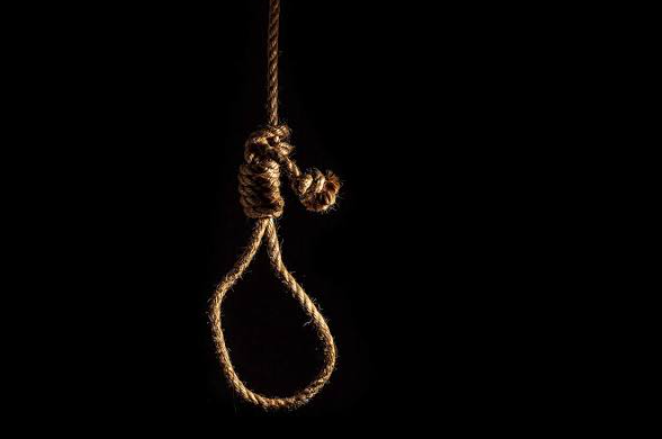
A heartbroken woman from Madziwa, Zimbabwe has reportedly committed su!c!de after her husband stole her money.
Auxillia Banda k!lled herself after discovering that her husband (only identified as Norman) had used the money to marry another woman.
National police spokesman Assistant Commissioner Paul Nyathi confirmed the incident and also disclosed that it is currently being investigated.
Nyathi said; “Yes, we can confirm that we have reports of a lady from Madziwa who committed suicide after her husband, a policeman, took her money and used it to marry another woman.”
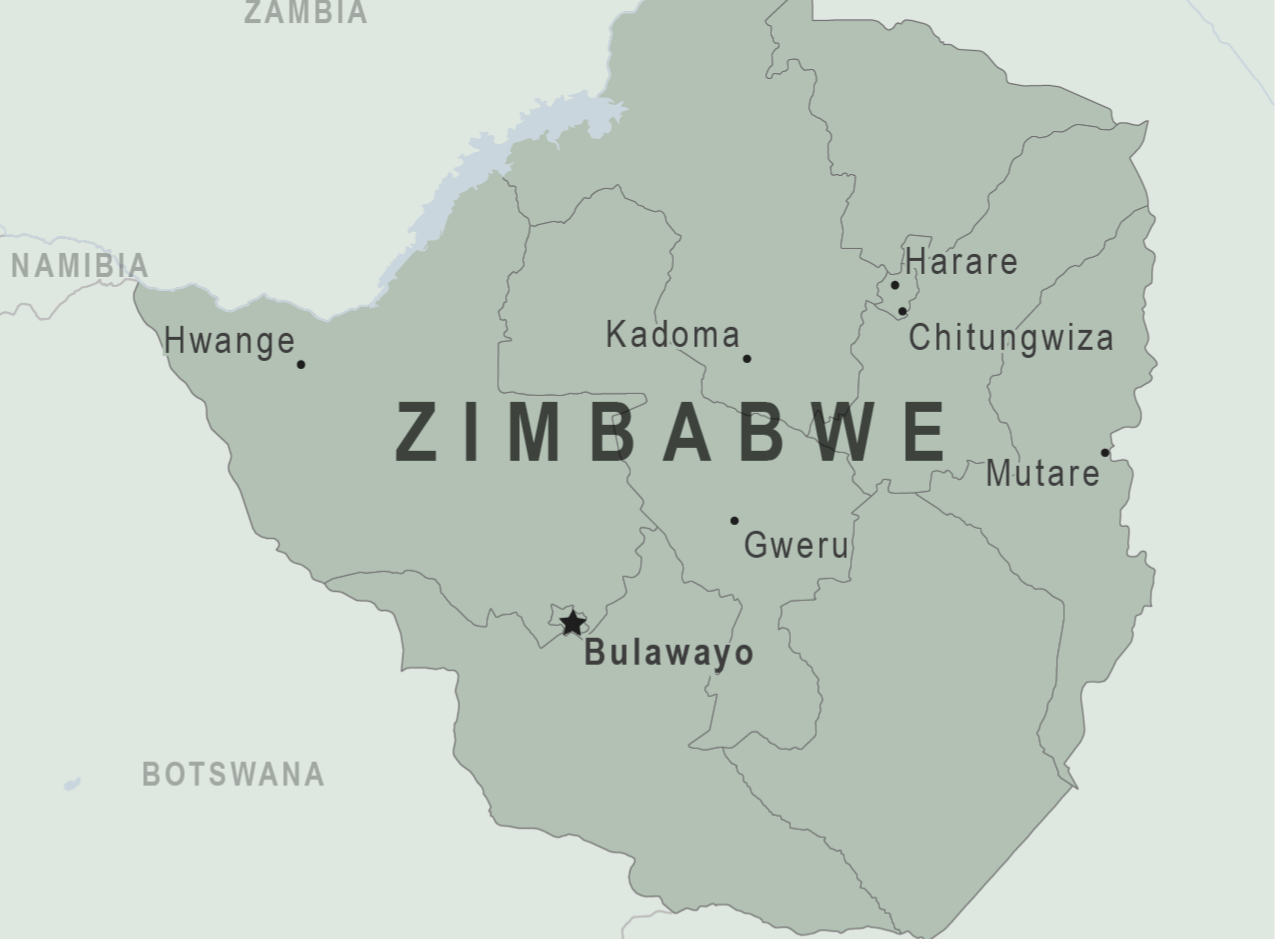
Zimbabwe’s army commander died early on Thursday due to cancer, the presidential spokesman has said.
The army holds an outsised influence in Zimbabwean politics.
In November 2017, the army stepped in to oust the late Robert Mugabe and pave way for incumbent President Emmerson Mnangagwa.
Lt.-Gen. Edzayi Chimonyo, who was appointed to the position after the coup, had been battling cancer, presidential spokesman, George Charamba, wrote on Twitter.
Chimonyo, like all the current crop of military generals in Zimbabwe, is a former fighter in the country’s 1970s war of independence.
The opposition often accuses the army of openly siding with the ruling party in violation of the constitution.

By Chukwuma Chinye
From celebrated liberator to ruthless dictator, a lot has been written about Robert Mugabe and how he ran Zimbabwe into socio-economic hell for the duration of his 37 years in power. Often ignored however, is how he managed to maintain a vice like grip on power for as long as he did. Mugabe’s ability to hold on to dictatorial power in Zimbabwe for 37 years amidst local and international opposition is a considerable feat. As such, analysing the tactics he employed to rule for so long will give the reader insight into how these tactics are repeated and revised across dictatorships, particularly as it pertains to dictatorships in Africa.
The survival of the Mugabe dictatorial regime hinged on a deadly mixture of violence, patronage and ideology. During his early years as ruler, he integrated nominally democratic institutions by holding regular elections and setting up a bicameral legislature. These institutions helped him maintain power as Zimbabwe operated a one-party state and often extended political positions to potential political enemies as a means of giving them a stake in political affairs. As a consequence, Mugabe ruled almost unrivalled. However, the turn of the twenty first century saw increased local and international pressures on the Mugabe regime. The sound rejection of his constitutional referendum to extend the constitutional limits of a presidential term to an indefinite number of years only served to exacerbate the situation. (Noack, 2017) Furthermore, Mugabe’s plans to seize land owned by descendants of white farmers further alienated him from an already disgruntled population. (Noack, 2017) A situation which the newly formed Movement for Democratic Change (referred to as MDC subsequently for brevity) capitalized on to galvanize opposition to Mugabe’s reign. The steady rise of the MDC led by Morgan Tsvangirai meant that by the 2008 election, Mugabe faced for the first time in his regime, credible threats to power (Masunungure,2011). ZANU-PF lost the parliamentary and presidential elections to the MDC party in May 2008 with Tsvangirai winning more votes than Mugabe but failing to win a 50% Majority.
As such, understanding Mugabe’s continued rule of the country in the face of staunch opposition is to learn what Mugabe and the ZANU-PF had to grasp fairly quickly: true dictatorial longevity cannot be achieved by solely using nominally democratic institutions. Mugabe thus incorporated repressive and legitimization tactics to further enhance his grip on power. As a result, the Mugabe regime was decidedly more violent and manipulative post 2000 which culminated in the use of brute force in the 2008 parliamentary elections. Having failed to gain a majority for the first time in his rule, Mugabe called a run-off election and used the interim period to ruthlessly purge his political enemies with 80 opposition politicians killed and hundreds more exiled. As a result, he had a clear path to victory in the run-off elections that ensued. As horrid as these tactics are, they point out Mugabe’s understanding of the power of the democratic process. Rather than cancel elections altogether, Mugabe ensured that the democratic institutions- (the party and the electoral process,) were used solely to strengthen his position. This was only achievable through intimidation, brute force and electoral rigging and as a result, Mugabe won 85% of the popular vote. This co-potation
of democracy and repression is a hallmark of Mugabe’s regime and can be observed in other African leaders’ formulas for dictatorial longevity. A good example of this is Museveni’s use of force to suppress Bobi Wine’s electoral campaign in Uganda.
Similarly, Mugabe incorporated his position as a revered freedom fighter against the Rhodesian government to bolster his dictatorial longevity. Mugabe and the ZANU were integral to the success of the liberation struggle against the Rhodesian government. Their very name includes words denoting patriotism. As such, the ZANU-PF and Mugabe are generally regarded as staunch Zimbabwean patriots, willing to put the country first above all else. Hence, the legitimization of the Mugabe regime was already deeply entrenched in the Zimbabwean people, meaning that Mugabe could lean on his revered status for support.
The use of nominally democratic institutions, violence and Nationalism were hallmarks of Mugabe’s dictatorship; individual components which when brought together created the perfect ‘science’ of repression which enabled him to hold on to power for so long. This blend of repression has been used time and again in various corners of Africa. From Libya’s Gaddafi who ruled unchecked for 40 years to Paul Biya’s dual use of repression and appeasement in Cameroon, examples are rife of African dictators perfecting these tactics.
As for Mugabe, his hold on power finally ended when he was unceremoniously ousted by his own party in 2017, the party ZANU-PF however still controls the political climate of the country. Only time will tell if the new leader will continue the cycle of repression in Zimbabwe.
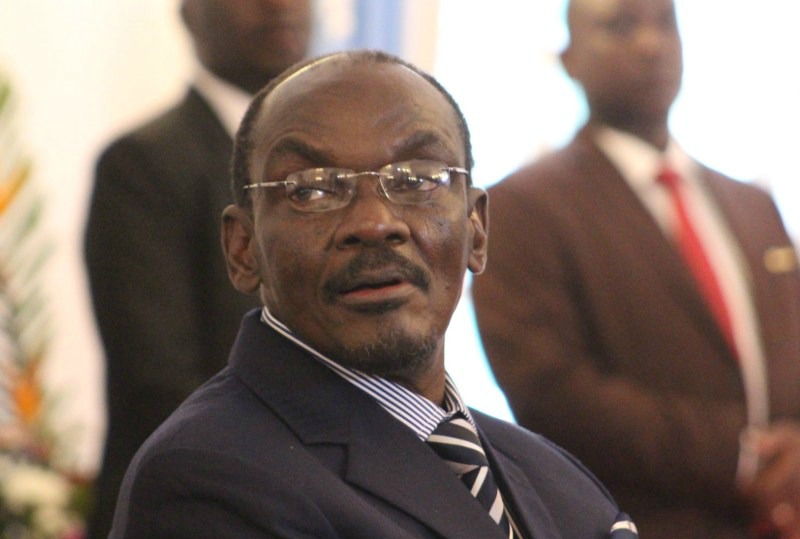
Zimbabwe’s Vice President Kembo Mohadi resigned Monday after sexual misconduct allegations, a rare move by a public official in the southern African country.
Local news outlets have since late last month been awash with audio recordings of phone conversations allegedly of Mohadi soliciting sex from married women, including a subordinate in his office.
First published by online publication ZimLive, the lurid clips included one where a man can be heard scheduling to meet for sex at his office.
“I am stepping down as the vice president of the Republic of Zimbabwe … with immediate effect,” the 71-year-old leader said in a letter posted on the Information Ministry’s Twitter account.
He said he was quitting “not as a matter of cowardice” but out of respect for his office “so that it is not compromised or caricatured by actions that are linked to my challenges as an individual.”
“I have been going through a soul-searching pilgrimage and realized that I need the space to deal with my problems outside the governance chair,” he said.
He repeated his denial of any wrongdoing, saying he was “a victim of information distortion, voice cloning, and sponsored spooking and political sabotage,” adding he would seek legal redress.
Mohadi’s resignation set off a buzz on social media with speculation fast shifting to who President Emmerson Mnangagwa would pick as his replacement.
Jacob Ngarivhume, an opposition politician and government critic, said he welcomed Mohadi’s resignation and hoped it was the “first of many as more evidence of (ruling) Zanu-PF impropriety is released.”
Mohadi, a retired soldier and veteran of the country’s liberation war, was one of Zimbabwe’s two vice presidents alongside Constantino Chiwenga.
He served in several ministerial positions under former president Robert Mugabe and was appointed vice president in 2017 following the longtime ruler’s ouster.

Two ministers serving in the Zimbabwean government died of the Coronavirus (COVID-19) within a matter of days, prompting the country to announce on Saturday plans to further tighten lockdown measures.
Late on Friday, the government announced that Transport Minister Joel Matiza had died after falling ill with COVID-19, less than two days after the country lost Foreign minister Sibusiso Moyo to the same disease.
Four government ministers have succumbed to the coronavirus in Zimbabwe so far.
According to unconfirmed media reports, several other cabinet ministers are fighting for their lives in a private hospital.
“We are in a dark cloud that we have to clear very soon,” deputy health minister John Mangwiro told dpa.
Mangwiro revealed plans to intensify the current lockdown, which has been in place since early January and includes a strict nightly curfew.
Restaurants, bars and gyms have also been forced to close.
“We have seen people not adhering to the lockdown regulations announced early this month,” he added.
Zimbabwe has registered 30,523 cases of infection since the start of the pandemic, including 962 deaths.
The numbers may seem relatively low compared to other countries.
However, the outbreak is putting the nation’s health system under considerable pressure.
Zimbabweans have taken to the social media to blame President Emmerson Mnangagwa and his predecessor, the late Robert Mugabe, for the country’s dilapidated health infrastructure.
Health workers recently went on strike over a lack of protective equipment and poor salaries.

Zimbabwe’s foreign affairs minister Sibusiso Moyo died on Wednesday, a day after testing positive for the Coronavirus (COVID-19), acting chief secretary to the president and cabinet George Charamba said in a statement.
A close family member of Moyo also confirmed the death to Xinhua.
“It’s true my brother. COVID-19. He tested positive yesterday,” the family member said.
He becomes the third government minister to succumb to COVID-19 since the pandemic hit the country in March 2020.
The retired army Lieutenant-General was the face of the military operation that ousted former President Robert Mugabe in Nov. 2019.
He went on to be part of current President Emmerson Mnangagwa’s administration.
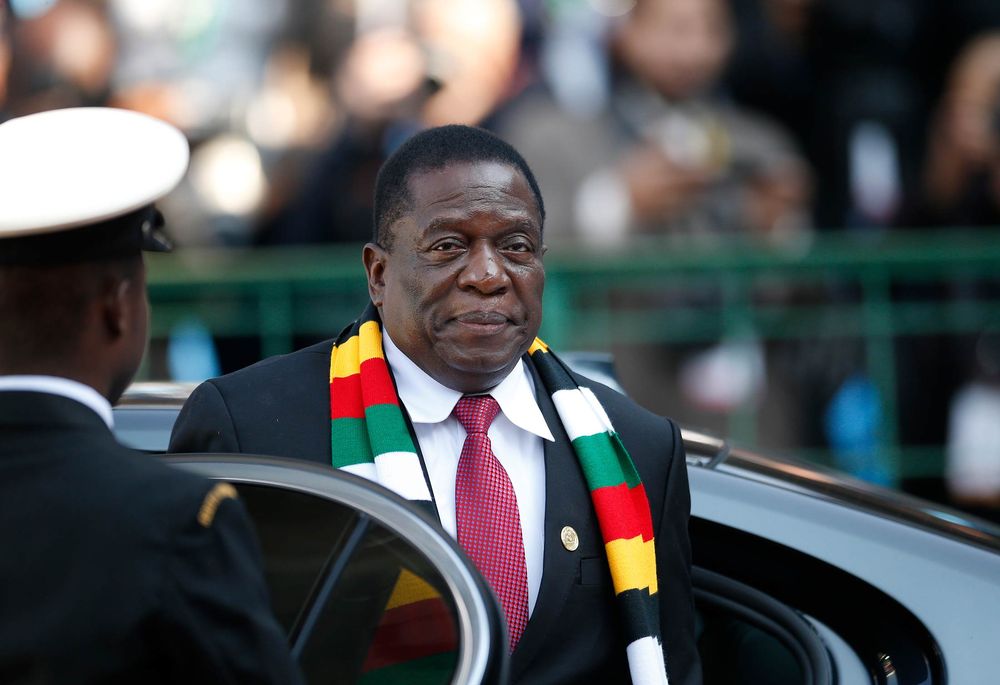
Zimbabwe’s government on Saturday imposed a national lockdown with immediate effect, following a surge in Covid-19 cases, creating a major problem for most citizens who rely on the informal employment sector.
Only essential services, such as hospitals, pharmacies and supermarkets will remain operational for the next 30 days, putting more pressure on already poverty-stricken families.
The southern African nation is already struggling with a deepening economic crisis, hyperinflation and high unemployment.
The government first imposed a nationwide lockdown in March to contain the spread of Covid-19, but had eased most of those measures amid fears of further economic malaise
Vice President and Health minister Constantino Chiwenga told reporters there had been a huge spike in cases over the festive season which almost doubled the number of infections recorded throughout the year.
“In light of the recent surge in Covid-19 cases the following stiff lockdown measures are being put in place with immediate effect,” he said.
“Gatherings are reduced to not more than 30 people at all funerals. All other gatherings at weddings, churches, bars, bottle stores, gymnasiums, restaurants etc etc are banned for 30 days,” he added.
Even premises providing essential services will have to close at 3 pm.
A new overall curfew will run from 6 pm to 6 am.
Covid 19 cases have almost doubled in two months from 8,374 at the start of November to 14,084 now.
A total of 369 virus-related deaths have been recorded in the country since the outbreak of the pandemic.
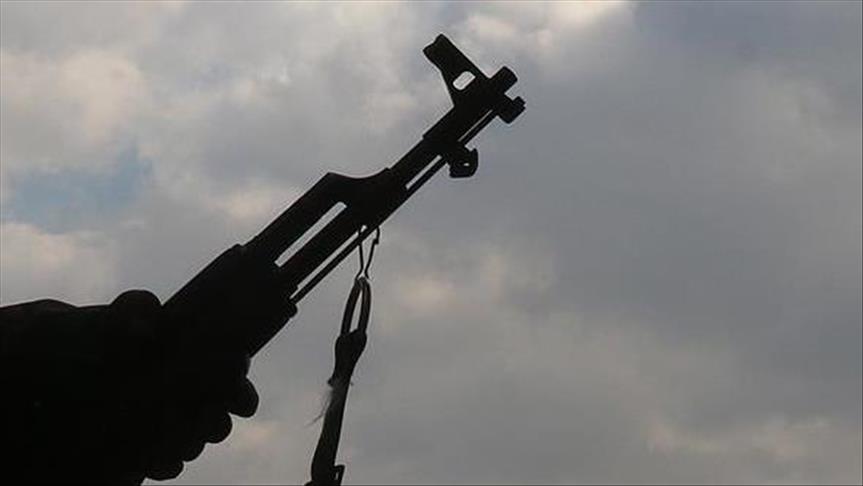
Eight armed robbers stormed the Bulawayo High Court in Zimbabwe on Sunday and injured two police officers as they tried to break open the registry safe using a grinder, state media reported on Monday.
The robbers gained entry into the court’s criminal registry after attacking and disarming police officers manning the premises.
Police spokesperson Paul Nyathi confirmed the incident and said investigations are underway.
The incident occurred at about 4 a.m. and the suspects were reportedly armed with pistols.
Bulawayo is Zimbabwe’s second largest city.
“We are investigating an armed robbery case which occurred at the Bulawayo High Court, Sunday morning at 4 a.m.
“It is said about eight suspects went to the court and attacked two officers who were on duty and these suspects were armed with pistols.
“After attacking them, they blindfolded one of the officers. They then tried to force open the court’s main safe to the criminal registry’s office using a key.
“After failing, they tried again to use a grinder and, in the process, it is alleged that they were making phone calls,” Nyathi said.
He said after failing in their attempts, they tied the hands and legs of one of the police officers.
The officer who sustained some serious injuries was taken to hospital.
“They attacked him using their weapons. He is being treated at a hospital in Bulawayo, but we cannot reveal where he is receiving treatment,” Nyathi said.
“These guys had inside information and we want to establish the motive behind the robbery and the attack on the officers.
“We are, therefore, leaving no stone unturned in our quest to get to the bottom of this case and apprehend the suspects.
“The law will definitely take its course,” he added.
Judicial Service Commission spokesperson Rumbidzai Takawira said the commission had deployed a team from Harare to assess the situation.
“`We have a team that is going there to ascertain what really transpired and we can only have information tomorrow (Monday),” said Takawira.
A legal expert who declined to be named said an exhibit safe room can contain files or prosecution documents for suspects appearing before the courts.
“A crime registry can store exhibits which include weapons used by criminals in committing crimes.
“The exhibits are very vital in the prosecution process and probably these robbers wanted to steal these exhibits or destroy important documents,” said the expert.